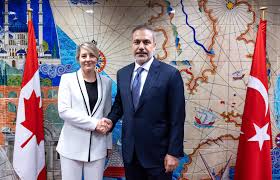Lebanon’s Current Landscape: Challenges and Resilience

Introduction
Lebanon, a nation rich in history and cultural diversity, is currently facing profound challenges that have significant implications for its citizens and the broader Middle Eastern region. With ongoing economic turmoil, political instability, and social unrest, the future of Lebanon is uncertain. Understanding these dynamics is crucial for gauging not only Lebanon’s future but also its impact on regional stability.
Economic Crisis
The economic situation in Lebanon has drastically deteriorated since 2019, when the country experienced a financial collapse that resulted in the devaluation of the Lebanese pound and a steep rise in poverty levels. Reports from the World Bank indicate that approximately 78% of the population now lives below the poverty line. Inflation has soared, with food prices increasing by over 600% in recent years. This economic crisis has led to widespread dissatisfaction among citizens, triggering protests that call for systemic political reform.
Political Landscape
Political instability continues to exacerbate Lebanon’s issues. The ruling class, entrenched in sectarianism, faces criticism for its inability to enact meaningful reforms. In September 2023, talks were initiated for the formation of a new government; however, progress has been slow. The ramifications of political impasse are dire, with crucial reforms required to unlock international aid. Without credible governance and accountability, Lebanon is unlikely to regain the trust of its populace or international partners.
Social Unrest and Civil Society
As economic conditions worsen, social tensions have escalated. Citizens have taken to the streets, demanding an end to corruption and better living conditions. Civil society organizations have become increasingly important, advocating for transparency and the rights of marginalized groups. The implementation of reforms and the establishment of a more inclusive government are at the forefront of their agenda. The increasingly vocal youth demographic is leveraging social media to mobilize support and draw international attention to their plight.
Conclusion
The road ahead for Lebanon is undoubtedly fraught with challenges. Economic recovery, political reform, and social unity are crucial for alleviating the suffering of the Lebanese people. With assistance from international organizations and a commitment to reform from political leaders, there is hope for a more stable and prosperous Lebanon. For readers, staying informed about Lebanon’s developments is vital, as the country’s fate may have broader implications for regional security and global geopolitics.








